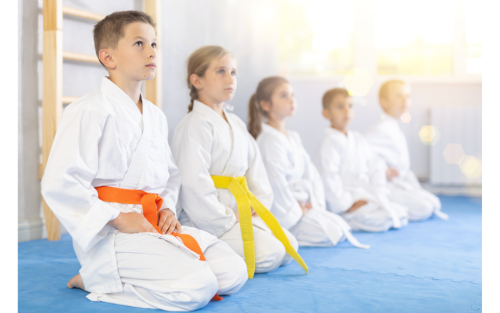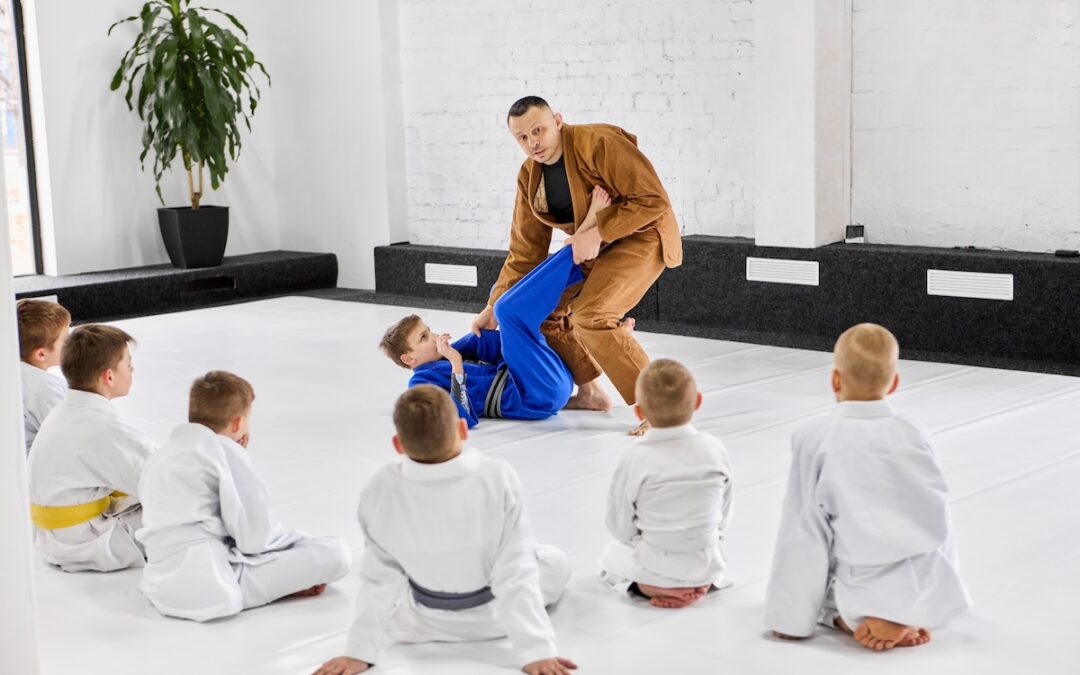Finding the best martial arts school that meets the needs of kids has become more and more important for parents as interest in kids’ martial arts continues to rise. There are numerous advantages to enrolling children in martial arts, such as increased confidence, self-discipline, focus, and physical health. It can be intimidating to sort through the many martial arts schools, though. In this guide, we’ll explore what to look for in a martial arts school for kids.
It is crucial to comprehend the important aspects to take into account when choosing a martial arts school for kids if you want to make sure your child has a happy and meaningful experience. Some key features parents should consider are an emphasis on class structure, values taught, age-appropriate programs, qualified instructors, safety, and parental engagement. These factors are crucial for fostering a child’s character development and martial arts growth.
The Importance of Martial Arts for Kids
The practice of martial arts for kids offers an abundance of invaluable benefits that extend far beyond physical fitness. This practice helps children develop fully by offering life skills. The following are some major arguments in favor of martial arts instruction for children:
Physical Fitness
Martial arts training requires a combination of aerobic endurance, strength, agility, and flexibility. It fosters general physical well-being, advances motor abilities, and encourages a healthy lifestyle.
Self-Discipline and Focus
Children acquire focus and discipline via disciplined training and repetitive exercises. They learn how to focus on work, obey directions, and maintain their commitment to objectives.
Confidence and Self-Esteem
As kids advance in martial arts, they get confidence through learning new skills and conquering obstacles. Their good self-image and self-assurance are fostered by this confidence, which also affects other aspects of their lives.
Respect and Discipline
Respect for instructors, classmates, and oneself is emphasized in martial arts. Children acquire knowledge about the value of self-control, modesty, and respect for the skills and accomplishments of others.
Conflict Resolution and Self-Defense
Children who receive martial arts training gain important self-defense skills as well as the ability to resolve problems amicably and steer clear of violence whenever feasible.
Factors to Consider When Choosing a Martial Arts School
There are several important considerations to make when choosing the best school. Here is what to look for in a martial arts school for kids or yourself to guarantee a positive and secure experience:
Instructor Qualifications
Check the qualifications, background, and instructional methods of the instructors. Seek out accredited instructors with a caring but strict style who specialize in teaching martial arts to kids.
Safety Measures
Assess the school’s safety procedures, such as the cleanliness of the training facilities, the upkeep of the equipment, and the student’s compliance with the rules.
Curriculum and Programs
Make sure the curriculum at the school reflects your objectives by reviewing it. Seek out programs that are age-appropriate, based on the stages of a child’s growth, and that encourage the development of both character and physical skills.
Facility and Amenities
Examine the school’s facilities to make sure they are adequate and furnished for martial arts instruction. It’s important to have enough room, practical amenities, and cleanliness.
Class Structure and Size
Consider the class configuration and the instructor-to-student ratio. Smaller class sizes often result in more individualized attention, which encourages better learning outcomes.
Values and Environment
Evaluate the culture and principles of the school. Look for settings that place a high value on discipline, respect, and a supportive learning environment.
Trial Classes or Sessions
Choose educational institutions providing introductory sessions or trial classes. This allows you or your child to assess instructional strategies, interactions, and suitability with direct experience.
Location and Schedule
Think about how close the institution is to your place of employment or residence, as well as how flexible the class schedule is. Regular attendance is influenced by accessibility and convenience.
Parental Involvement and Communication
Look for educational institutions that promote parent participation and uphold transparent lines of communication about a child’s development, happenings, and expectations.

Tips for Evaluating Prospective Martial Arts School
When considering prospective martial arts schools for your child, implementing these specific tips can significantly aid in your evaluation process:
Observation During Class Hours
Attending the school during regular business hours provides an opportunity to observe the environment and teaching firsthand. Take note of the way instructors engage with their students, the general dynamic in the classroom, and the degree of student participation. This observation sheds light on the educational approach and determines whether it suits your child’s preferred method of learning.
Inquisitive Approach
Never be afraid to inquire about relevant topics regarding the methodology, philosophy, and approach of the institution. Find out about the demands placed on students, the price system, the class schedule, and the curriculum. You must understand these elements to make sure that your child’s requirements and your expectations as a parent are met by the school’s operational details and ideals.
Trial Classes or Introductory Sessions
Trial lessons and introduction sessions are offered by a lot of martial arts schools. Make the most of these chances to give your child a personal look at the teaching technique and general atmosphere. Your child may assess how comfortable they are in the school, how the instructor teaches, and whether the sessions are a good fit for their interests and learning style through this first-hand experience.
By implementing these tips, parents can make a more informed decision about which martial arts school aligns best with their child’s preferences, learning goals, and overall comfort level. These firsthand experiences and thorough inquiries contribute to selecting a school where your child can thrive and enjoy their martial arts journey.
Conclusion
Following the above guidance can help you understand what to look for in a martial arts school for kids. The ideal school can allow for a happy and satisfying experience while putting safety first, having knowledgeable and interesting instructors, providing an age-appropriate curriculum, placing a strong emphasis on morals and character development, fostering a friendly environment, and welcoming parental involvement. Parents can choose a martial arts school that best suits their child’s needs by carefully weighing these elements. Martial arts help keep your children healthy, develop physical talents, and acquire important life skills, such as discipline, confidence, and conflict resolution. A well-selected school can act as a supportive environment, giving youngsters the tools they need to succeed in the dojo and other areas of their lives, and setting the stage for a fulfilling martial arts career.
To a Fitter Healthier You,
Adriana Albritton
The Fitness Wellness Mentor



